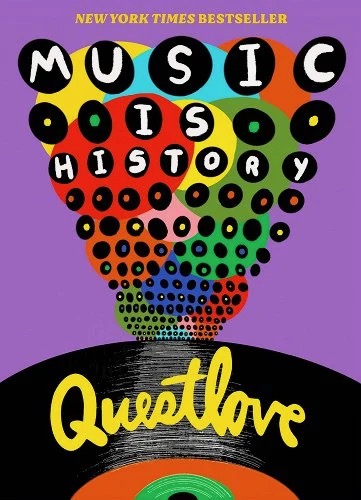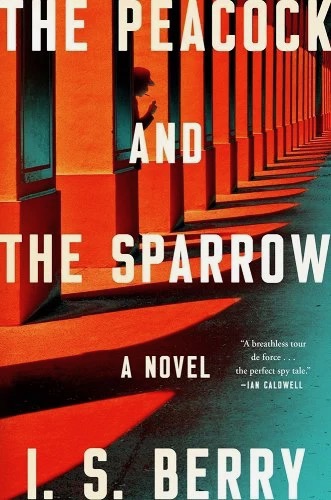Reader’s Notebook, 2/13/24

Sing Her Down – Ivy Pochoda
I read this book while I was sick. Maybe the infection or virus or whatever was plaguing me combined with a lack of sleep and cold meds kept me from appreciating it. Because I did not get this book at all.
It is the story of two women who are released from prison during the Covid lockdown and travel from Arizona to LA. They run into some troubles and get the attention of an LA cop who has her own issues she’s dealing with. And, well, I’m not sure what else to say about it.
I didn’t get Pochoda’s style, didn’t like her dialog, didn’t understand any of the journeys the characters were on. I kept waiting for some “Aha!” moment that brought it all together and illuminated it for me, but that never came. I remember this getting good reviews so, again, I’m going to chalk it up to my illness and not to any actual deficiencies in the story.

Music Is History – Questlove
Man did I love this book. Questlove uses his life as a map for tracing various developments in music history. Beginning with his year of birth 1971 – mine too! – each chapter tackles a broad issue, using songs from both that year and others to flesh out that idea’s significance. He examines sampling, Blaxploitation films and the music that came from them, what should be correctly categorized as funk, political music, following lines of influence between artists and genres, the meaning of stardom, choosing your own path in the music world, the rise of hip hop, and so on.
I dig Questlove’s worldview and his writing. But, again, I read this while sick, and I fear his points didn’t stick with me as much as they would if I read it next week or next month. With that in mind, I may revisit it at some point.


The Peacock and The Sparrow – I.S. Berry
I ran across so much praise for this novel in various outlets. Much of it was from people who, like I.S. Berry, had served in the CIA or other intelligence services. They all agreed that the novel presented a hyper-realistic accounting of what it is like to be an agent in another country.
That’s cool and all, but as someone who has never been a spy,[1] should that matter to me? A good story is a good story, and since I don’t know what it is like to be operating in a foreign land, I can be tricked pretty easily into believing whatever the author wants me to as long as their story isn’t too outrageous. Good writing and a solid story are generally enough for me. Having people who claim to know what it’s really like suggest it comes close to reality is just a cherry on top.
That’s a thought I had while reading this book, which was indeed excellent. A CIA officer who is near retirement finds himself in the midst of an uprising in Bahrain during the Arab Spring of 2011–13. His official mission is to liaise with a member of the underground opposition to gauge their strength, intentions, and possible ties to Iran. As he discovers that the government was behind a bombing officially attributed to the rebels and that the US is illegally supplying weapons to the government, he grows disillusioned. He also falls in love with a local along the way (naturally), making him even more suspicious of the CIA’s aims. He ends up making a series of decisions that clear his conscious but have massive implications for the fate of Bahrain.
There are a couple of “twists” in the story. I put that word in quotation marks because I don’t think they are supposed to be big surprises. They become more expected and obvious the deeper you get into the book. I don’t think Berry’s goal was to shock the reader, but rather show how easily people can be deceived and take actions suggested by other. Even the most jaded intelligence service lifer.
- As far as you know. ↩